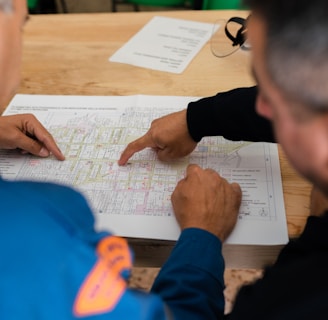Estimation
A brief about Estimation
Er. Abhishek
10/16/20232 min read


Engineering estimation is the process of predicting the time, cost, and resources required to complete an engineering project. It is a complex task that requires a deep understanding of the engineering process, as well as the factors that can affect project outcomes.
Accurate engineering estimation is essential for successful project management. It helps to ensure that projects are completed on time and within budget, and that the necessary resources are available when and where they are needed.
There are a number of different estimation techniques that can be used in engineering. The most common technique is to use historical data from similar projects. However, this technique can only be used if there is a sufficient amount of historical data available, and if the projects are similar enough to be comparable.
Other estimation techniques include:
Expert judgment: This technique involves using the judgment of experienced engineers to estimate the time, cost, and resources required for a project.
Parametric estimation: This technique uses statistical relationships between project variables to estimate project outcomes.
Bottom-up estimation: This technique involves breaking down a project into smaller tasks and estimating the time, cost, and resources required for each task.
The best estimation technique to use will depend on the specific project and the availability of data. In many cases, a combination of different techniques will be used to get the most accurate estimate possible.
Here are some tips for improving your engineering estimation skills:
Understand the project: The first step to accurate estimation is to have a good understanding of the project scope, requirements, and constraints. Be sure to carefully review the project plans and specifications before starting your estimate.
Use historical data: If there is a sufficient amount of historical data available, use it to your advantage. Compare the current project to similar projects that have been completed in the past. This will give you a good starting point for your estimate.
Break the project down into smaller tasks: This will make it easier to estimate the time, cost, and resources required for each task. Be sure to include all of the tasks required to complete the project, even the small ones.
Use risk analysis: There is always some uncertainty involved in engineering projects. Be sure to identify and assess the risks associated with the project, and factor them into your estimate.
Get feedback: Once you have a draft estimate, get feedback from other experienced engineers. This will help to identify any areas where your estimate may be inaccurate.
Conclusion
Engineering estimation is a complex task, but it is essential for successful project management. By following the tips above, you can improve your estimation skills and get more accurate estimates for your projects.
Subscribe to our newsletter
What we do
Who we are
Copyright - Shastree Technocrats Private Limited. All Rights Reserved
Website Developed by Shastree Technocrats Pvt. Ltd.
